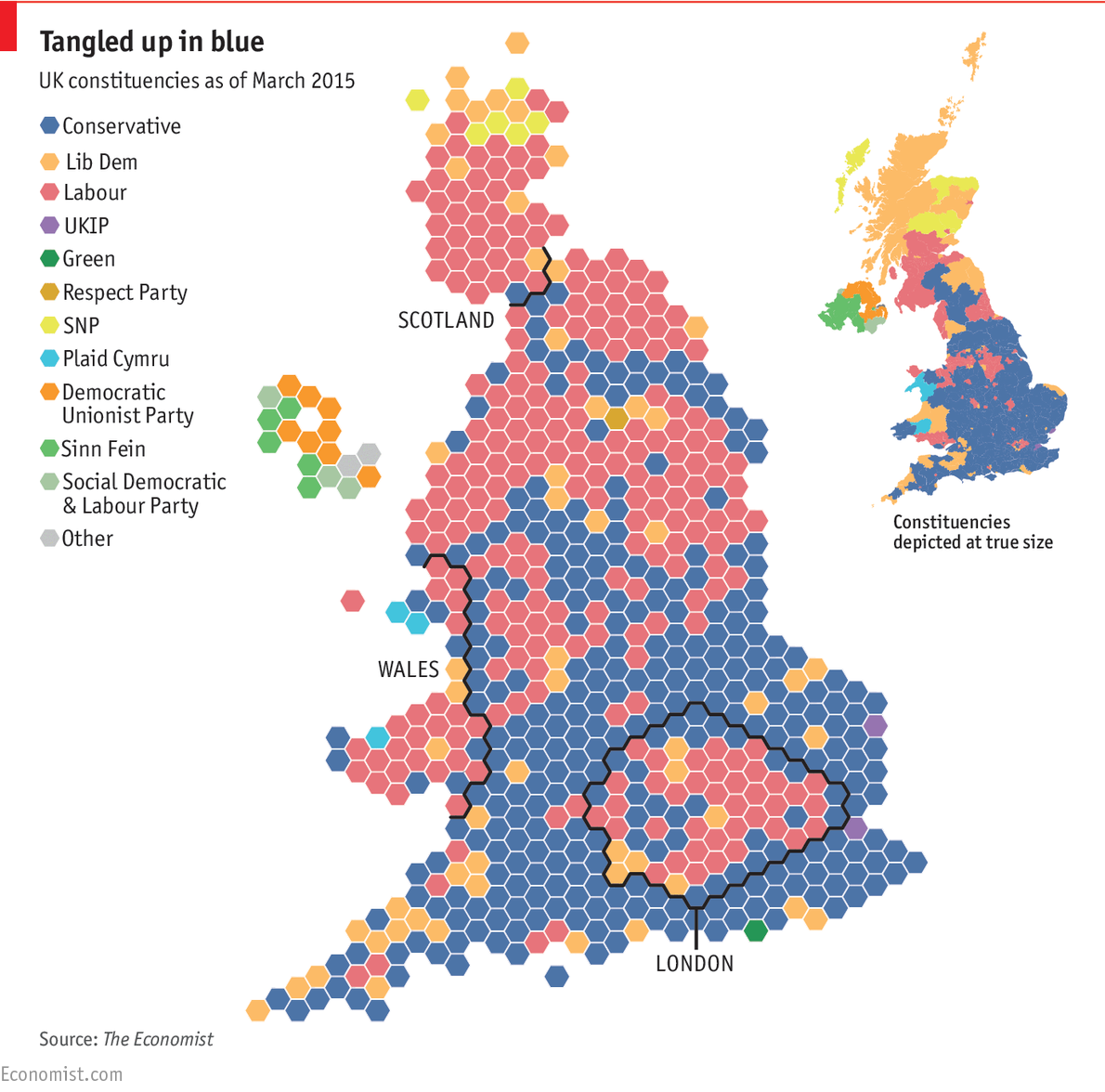Ain’t got that swing Why this election is exceptionally hard to predict
Ain’t got that swing Why this election is exceptionally hard to predict

NO BRITISH election is complete without a swingometer. The classic version looks a bit like the bottom half of a clock, with the hour hand showing the “national swing” from one of the main parties to the other—and indicating how many seats will change hands as a result. It first appeared in the BBC’s report on the 1959 general election, as a hand-operated dial on a black-and-white map of Britain. These days it is snazzier, with digital animations. But in May it will be almost completely irrelevant. Though the fundamental mathematics of the election are unchanged to win an outright majority, a party needs about 320 seats—the notion of a national swing has been thrown out. As a result, predicting the outcome of the election is even harder than usual.
Special report
A second change is the regionalisation of British politics. In the post-war decades the country swayed fairly uniformly, like a pendulum, between the two main parties. Now different regions have different political dynamics. Labour emerged from the 2010 election as the party of the north and the big cities, the Conservatives as that of the south and rural areas (see map). The north-south economic divide reinforces this; for example, in this election Lib Dem MPs will probably fare worse in leftish parts of the north, where the coalition’s public spending cuts were deepest, than in the more prosperous south.
Another big shift is that MPs are becoming more independent. The internet makes it easier for them to develop personal brands, and the public’s disillusionment with politics encourages them to behave like outsiders. Many in Westminster mention Gisela Stuart, a Labour MP, as the example to follow. Her Birmingham Edgbaston seat should have gone Tory in 2010, but she held it by campaigning energetically on local issues and by being conspicuously independent-minded. If more MPs are acting like her (and it seems they are: the outgoing parliament was the most rebellious since at least 1945) the national swing will be even less relevant.
All this explains why it is fiendishly hard to tell which way the election will go. With so many cross-cutting questions “will UKIP gift Tory seats to Labour?”, “how will the Lib Dems hold up in the south?”,“will more local-champion MPs hang on to seats they would otherwise lose?” it might be past breakfast time on May 8th before the result is clear.
But that is chiefly a problem for psephologists. The problem for politicians is that forming a government after the election might prove complicated. Geographically polarised, hemmed in by insurgents and only partly in control of their MPs, neither Labour nor the Conservatives have a commanding lead. If that does not change in the next few weeks, Britain might end up with another hung parliament. The question then becomes: what combination of parties’ MPs would add up to more than 320?
At first glance, Labour has the most reasons to be chipper. Its votes are more efficiently distributed than those of the Conservatives, so under Britain’s “first past the post” electoral system it gets more seats for less support. Fully 36% of the vote put the Tories 20 seats short of a majority in 2010; 35% gave Labour a majority of 64 in 2005. And Labour might be able to team up with two hefty partners—the Lib Dems and the Scottish National Party. The Tories have only the Lib Dems.
Yet the Tories have the momentum. Since last summer David Cameron’s party has erased a ten-point Labour lead. As this briefing went to press, Elections Etc and Electoral Forecast, two websites run by political scientists, respectively projected that it will emerge with 296 and 283 seats, with Labour on 261 and 280. Anything much above that should put another Tory-Lib Dem government (possibly with the support of Northern Irish unionists) within reach. Nick Clegg, the Lib Dem leader, would probably prefer to deal with David Cameron than with Ed Miliband.
It is also possible that the next government will not have a majority at all, particularly if the Lib Dems are too small to prop up either of the main parties. Thus a weak minority government would emerge, probably getting little done but possibly wobbling on for a surprisingly long time. The Fixed-Term Parliaments Act, introduced in 2011, means an election could only be called before 2020 if two-thirds of MPs agreed to it (or one government is voted out and another is not in place after two weeks). And MPs will only support an early dissolution of parliament if they have a good sense of any election result which, to judge by how unpredictable British politics is these days, they will not.
Comments
- No comments found



Leave your comments
Post comment as a guest